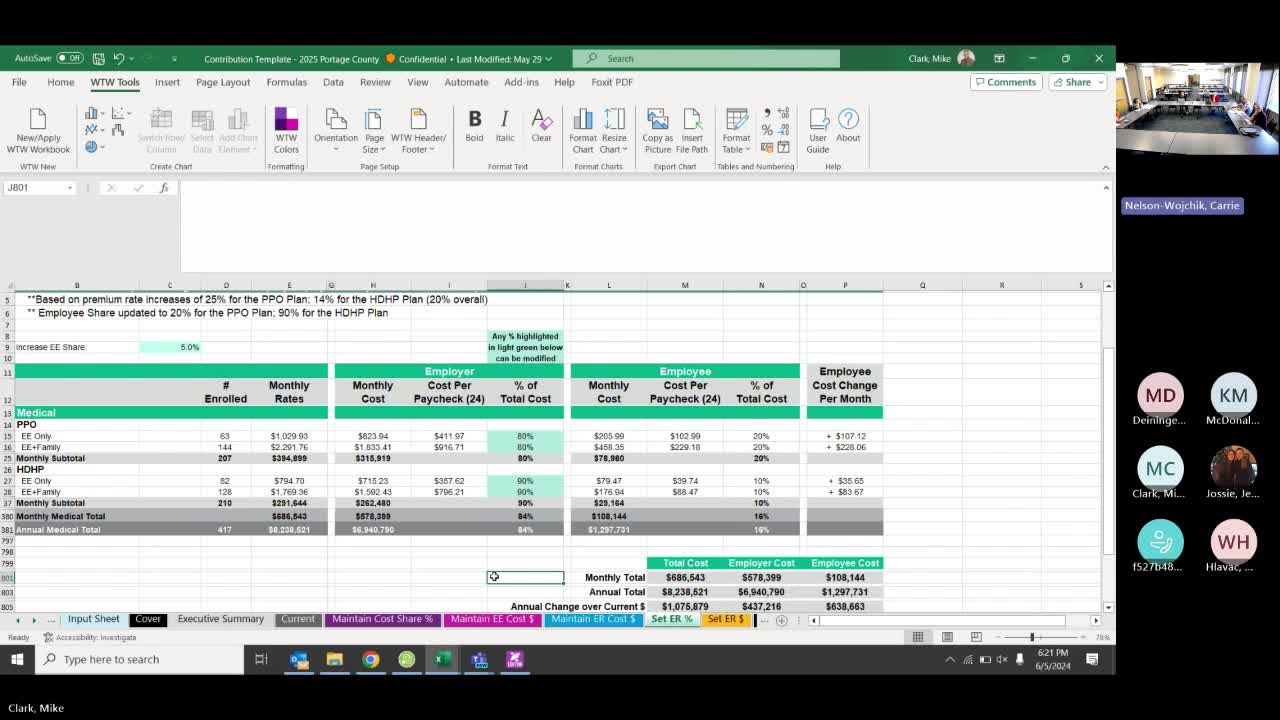Health plan costs surge as officials propose major increases
June 05, 2024 | Portage County, Wisconsin

This article was created by AI summarizing key points discussed. AI makes mistakes, so for full details and context, please refer to the video of the full meeting. Please report any errors so we can fix them. Report an error »

In a recent government meeting, officials discussed significant changes to employee health care contributions in response to rising costs. A motion was made to implement a 20% increase in employee contributions for the Preferred Provider Organization (PPO) plan and a 10% increase for the high deductible health plan. This decision aims to address budgetary concerns and stabilize the health care reserves, which have been under pressure.
During the discussions, some members expressed concerns about the impact of these increases on lower-paid employees who rely on the PPO plan. One official noted the importance of ensuring that employees can afford necessary medications, highlighting the delicate balance between cost-sharing and employee welfare. There was also a suggestion to consider an even higher cost share for the PPO plan to incentivize employees to switch to the high deductible option, although this idea was met with caution due to potential financial strain on lower-income workers.
The committee acknowledged that the proposed changes would only bring the reserves to a minimum safety net of three months, prompting discussions about the need for ongoing monitoring of the financial situation. Officials emphasized the importance of making informed decisions based on data, particularly given the recent fluctuations in health care costs.
The motion to increase contributions was ultimately approved, with members agreeing to reassess the situation in the coming months. Additionally, a motion was made to maintain the Health Savings Account (HSA) contributions at the same level, although further details on this aspect were not fully discussed during the meeting.
Overall, the meeting underscored the challenges faced by the committee in balancing budgetary constraints with the health care needs of employees, particularly in a climate of rising health care costs.
During the discussions, some members expressed concerns about the impact of these increases on lower-paid employees who rely on the PPO plan. One official noted the importance of ensuring that employees can afford necessary medications, highlighting the delicate balance between cost-sharing and employee welfare. There was also a suggestion to consider an even higher cost share for the PPO plan to incentivize employees to switch to the high deductible option, although this idea was met with caution due to potential financial strain on lower-income workers.
The committee acknowledged that the proposed changes would only bring the reserves to a minimum safety net of three months, prompting discussions about the need for ongoing monitoring of the financial situation. Officials emphasized the importance of making informed decisions based on data, particularly given the recent fluctuations in health care costs.
The motion to increase contributions was ultimately approved, with members agreeing to reassess the situation in the coming months. Additionally, a motion was made to maintain the Health Savings Account (HSA) contributions at the same level, although further details on this aspect were not fully discussed during the meeting.
Overall, the meeting underscored the challenges faced by the committee in balancing budgetary constraints with the health care needs of employees, particularly in a climate of rising health care costs.
View full meeting
This article is based on a recent meeting—watch the full video and explore the complete transcript for deeper insights into the discussion.
View full meeting
